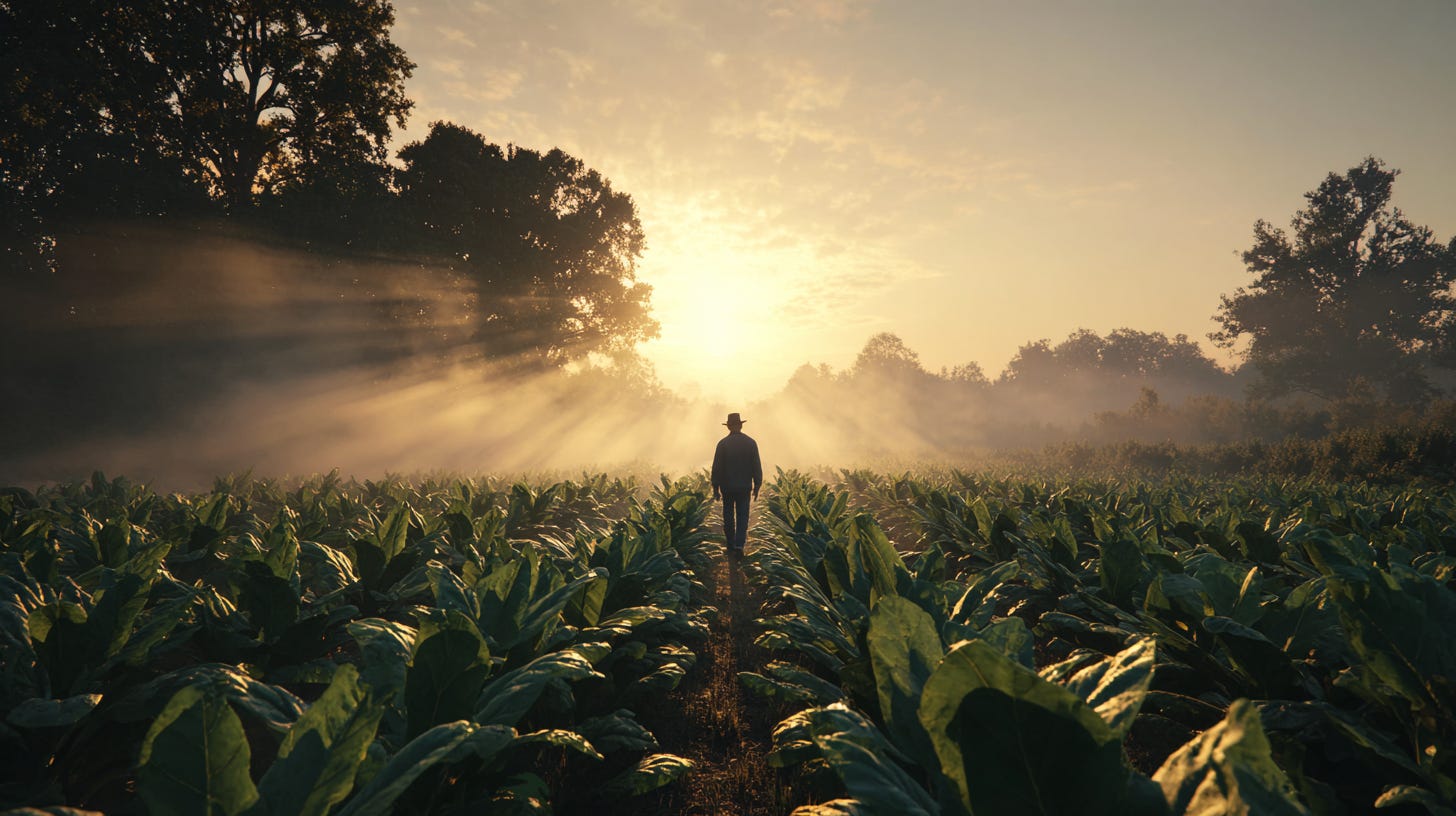Sustainable Cigars: How the Industry Is Going Green
Eco-friendly tobacco practices shaping premium cigars
🎧 Want the full experience?
Hit play on the audio clip above and let the vibe set in as you read — like sharing a smoke and a story together.
Cigars and Sustainability: How the Cigar Industry Is Adapting to a Greener Future
The best cigars tell a story long before the first puff. Picture a sunrise over a Nicaraguan tobacco field: the air is cool and heavy with the scent of damp earth, and farmers — often from families who’ve cultivated these fields for generations — move slowly through rows of broad green leaves, checking for signs of pests, weather damage, or overwatering. But in recent years, these growers have faced challenges that can’t be solved by experience alone. Climate change, shifting weather patterns, and environmental pressures are reshaping the way tobacco is grown and cigars are made.
For decades, cigar production has relied on practices that have taken a toll on the planet, from the use of chemical-heavy fertilizers and pesticides to packaging that ends up as landfill waste. But a growing number of cigar manufacturers are realizing that sustainability is no longer optional. It’s a way to protect the craft, the land, and the legacy of cigars for the next generation of smokers.
This isn’t about compromise — it’s about evolution. The rise of sustainable cigars shows that the industry can respect tradition while embracing new methods that honour the natural environment, reduce carbon emissions, and ensure the continued excellence of premium tobacco.
Key Takeaway
Cigar production is evolving: More cigar brands are adopting environmentally friendly practices to reduce their carbon footprint.
Sustainable tobacco farming: Techniques like organic cultivation, crop rotation, and reduced pesticide use protect both the soil and the smoker’s experience.
Packaging is going green: Biodegradable materials and recyclable boxes are replacing plastics and non-recyclable components.
Consumers hold power: Smokers who opt for sustainable cigar brands are driving the shift toward a greener industry.
Tradition meets innovation: Sustainability is becoming as important as flavor and craftsmanship in defining the future of the cigar industry.
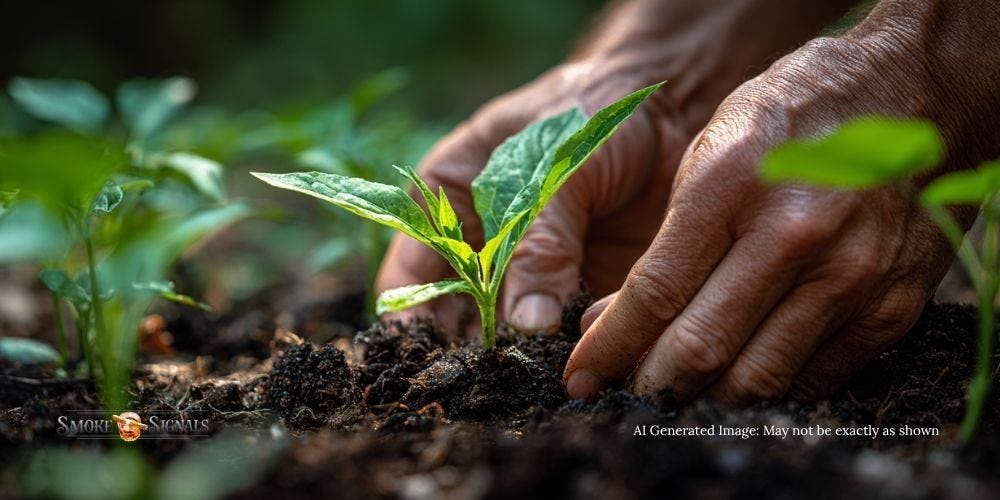
The Rise of Sustainable Cigars 🌱
There’s a quiet revolution happening in the world of premium cigars — one that has nothing to do with new blends or flashy branding. It’s about the environmental impact of tobacco and how the cigar industry is responding to it. For decades, cigar production relied on methods that were efficient but rarely environmentally friendly — heavy water usage, synthetic fertilizers, and curing barns powered by energy-hungry systems. While these practices produced outstanding tobacco, they left a noticeable carbon footprint.
Today’s smokers are changing the conversation. Many enthusiasts are no longer satisfied with just a smooth draw and rich aroma; they want to know where their cigars come from, how they’re grown, and what effect they have on the planet. This shift in mindset is pushing cigar manufacturers to rethink their entire production process, from the field to the humidor.
Why the Shift Matters 🌍
Cigars are, at their core, an agricultural product. That means the cultivation of tobacco is directly tied to the health of the soil, water supply, and surrounding ecosystem. When farming practices strip the land of nutrients or pollute waterways, they threaten the long-term viability of the entire industry. Sustainability isn’t just a trendy word — it’s about preserving the art of cigar-making for future generations.
The Consumer’s Role 👤
Smokers are now leaning toward cigar brands that proudly tout their eco-friendly practices, whether that involves using organic tobacco leaves, reducing emissions, or adopting biodegradable packaging. In many ways, the modern smoker is shaping the future of cigars, one purchase at a time.
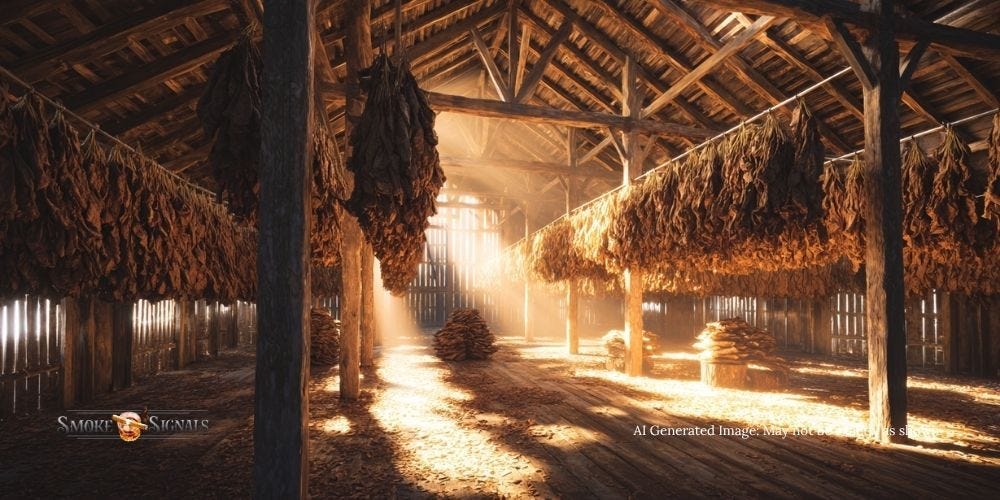
Sustainable Cigar Production: From Seed to Ash 🌍
The journey of every cigar begins long before it’s hand-rolled — it starts with the tobacco seed, the soil it’s planted in, and the care it receives from skilled growers. Traditionally, this process has relied heavily on the use of chemical fertilizers, pesticides, and irrigation, all of which leave a significant environmental footprint. Today, however, many cigar manufacturers are reimagining how they cultivate and process their tobacco, bringing sustainability into every stage of the production process.
Organic and Low-Impact Tobacco Farming 🌿
In regions such as Nicaragua, Honduras, and the Dominican Republic, tobacco farms are transitioning toward organic and regenerative farming techniques. These approaches protect soil health by using natural fertilizers such as composted plant material or manure instead of chemical-based products. Crop rotation is another method being used to ensure the soil doesn’t lose key nutrients. These practices don’t just benefit the environment — they often lead to richer, more nuanced tobacco leaves with deeper flavours, giving the smoker an experience that’s as pure as it’s satisfying.
Water conservation is another area of focus. Rather than relying on traditional flooding irrigation, some farms are using drip irrigation systems, which deliver water directly to the roots of each plant. This reduces water waste and prevents the kind of soil erosion that can devastate farmland.
Eco-Friendly Fermentation and Aging Processes ♻️
After the tobacco leaf is harvested, it undergoes fermentation and aging — two critical steps in developing the flavor and aroma of a premium cigar. In the past, these stages required energy-intensive processes, often powered by fossil fuels. Now, innovative cigar brands are turning to renewable energy sources, such as solar or biomass, to power their curing barns.
Some manufacturers are even experimenting with closed-loop systems that recycle water and capture heat, further minimizing emissions. Others have begun repurposing leftover tobacco stems and scraps, utilizing them as organic matter for compost or energy generation, thereby reducing waste to nearly zero.
💡 Pro Tip:
When choosing cigars, ask your tobacconist about how the tobacco was cured. Solar-powered or energy-efficient curing barns often produce leaves with more nuanced flavors — and a much smaller carbon footprint.
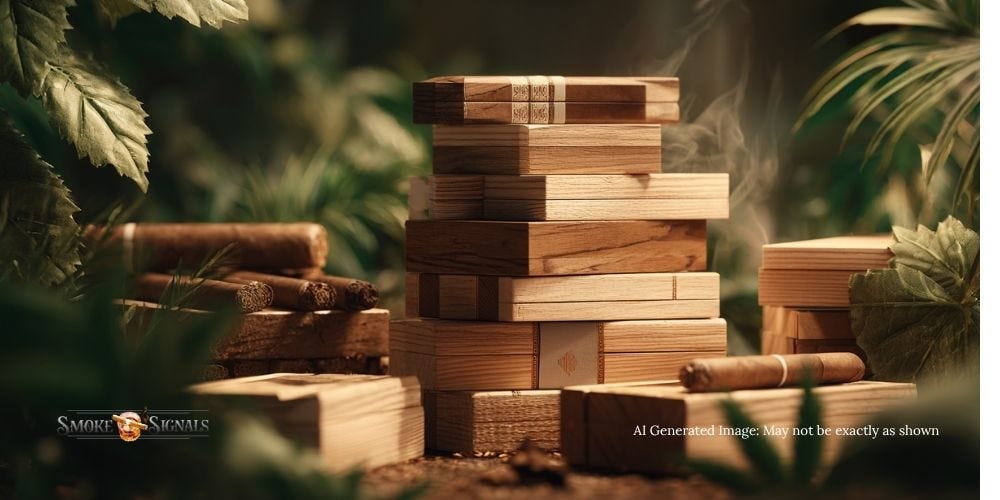
Cigar Brands Leading the Green Movement 🌟
The conversation about sustainable cigars isn’t hypothetical — it’s already happening in the factories and fields of some of the world’s most respected cigar brands. These companies are demonstrating that eco-friendly practices can coexist with tradition, quality, and craftsmanship. By taking steps to reduce their carbon footprint, improve waste management, and use renewable energy, they’re redefining what it means to be a premium cigar maker in the modern era.
Plasencia Cigars 🌱
Few brands have done as much for sustainability as Plasencia. They’ve been certified organic for over two decades and lead the industry in environmentally friendly farming practices. By using drip irrigation, natural compost, and energy-efficient curing barns, Plasencia reduces water waste and emissions while maintaining the highest standards of tobacco quality. Their Reserva Original line is a shining example of what can be achieved when tradition meets ecological responsibility.
Perdomo Cigars 🌿
At Perdomo, sustainability is part of the brand’s DNA. They use oxen instead of tractors to plow fields, dramatically lowering fuel consumption and soil compaction. Their farms rely on custom water filtration systems and organic manure fertilizers, cutting down the use of synthetic chemicals. It’s a return to old-world techniques that not only protect the environment but also enhance the natural flavors of the tobacco leaf.
💡 Pro Tip:
Want to support sustainable brands? Look for mentions of organic farming, biodegradable packaging, or renewable energy use on the box or brand website. Plasencia and Joya de Nicaragua are two standout examples.
Farm House Blends 🌾
Known for their eco-conscious packaging, Farm House Blends has become a leader in utilizing biodegradable and recyclable materials. From sustainably sourced wood boxes to compostable wrappers, every detail is designed with the planet in mind. Their approach appeals to smokers who want a high-quality experience while making a positive impact.
Foundation Cigars 🌍
Foundation Cigars takes a “Seed to Cigar” approach, sourcing and producing tobacco locally to reduce transportation-related emissions. By keeping production close to the fields, they reduce their environmental footprint and maintain complete control over farming practices. This results in cigars that are not only premium but also deeply connected to the land.
Joya de Nicaragua 🌳
Joya de Nicaragua has embraced reforestation efforts, planting trees to offset deforestation caused by cigar box production. They’ve also implemented shade-grown tobacco techniques, which help preserve the natural environment and reduce reliance on chemical interventions. Their focus on long-term sustainability makes them one of the most respected names in eco-conscious cigar making.
Love learning about the craft and culture behind premium cigars? Join our Smoke Signals community for insider stories, expert tips, and cigar wisdom delivered straight to your inbox.
Subscribe now
What Sustainability Means for the Cigar Industry 🌎
The cigar world has always celebrated craftsmanship, patience, and tradition, but now it’s being called to celebrate something more: responsibility. Sustainability in the cigar industry isn’t just a marketing buzzword; it’s about ensuring that the land, the people, and the process behind every premium cigar can thrive for generations to come.
The Role of Consumers in Driving Change 👥
Make no mistake, smokers have power. Each time someone chooses a sustainable cigar brand, they’re signalling to the industry that environmental responsibility matters. This demand is prompting cigar manufacturers to adopt eco-friendly farming techniques, reduce emissions, and explore biodegradable packaging options. In many ways, the modern smoker is as much a driver of change as the growers and brands themselves.
Smokers are also becoming more informed. They’re asking where the tobacco leaves are grown, how the production process impacts the environment, and whether a brand’s green claims hold water. As a result, companies that can demonstrate transparency and authentic efforts in sustainability are building deeper trust and loyalty.
The Future of Sustainable Cigars and What’s Next 🔮
Looking ahead, sustainability will likely shape how new cigars are blended, packaged, and even marketed. Expect to see greater use of renewable energy, life-cycle assessments, and carbon accounting to track the full environmental footprint of cigar production.
We may also see more collaboration between brands and local farming communities, with an emphasis on regenerative agriculture techniques that not only preserve the land but actively restore it. The use of solar-powered curing barns, composted byproducts, and efficient energy use will no longer be a novelty but the norm.
The truth is simple: without a healthy environment, there can be no premium cigars. The industry is starting to recognize this reality and adapt accordingly, blending the artistry of hand-rolled cigars with the science of sustainability.
💡 Pro Tip:
Upgrade your humidor game! A humidor lined with untreated Spanish cedar is both eco-friendly and naturally enhances aroma — no chemicals needed.
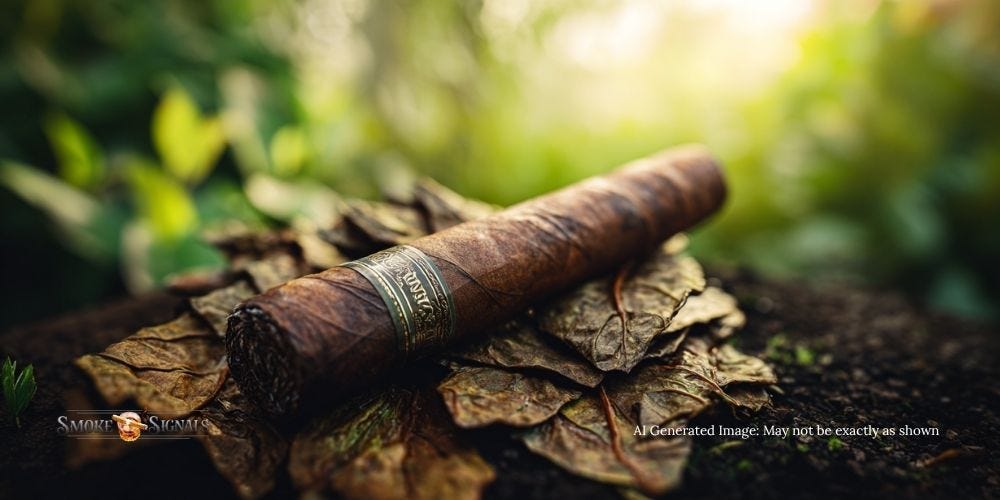
Conclusion: A Greener Future for a Timeless Tradition 🌿
The world of premium cigars has always celebrated artistry — from the skilled hands that roll each stick to the carefully aged tobacco leaves that give it its signature flavour. Now, the focus is expanding to include the environmental impact of every step in the process. As climate challenges grow and consumer expectations evolve, cigar manufacturers are realizing that sustainability is no longer optional — it’s the next chapter in the cigar story.
For the smoker, this shift offers an opportunity to enjoy a cigar that not only tastes exceptional but also carries a more profound sense of purpose. Supporting sustainable cigar brands means supporting farms, factories, and packaging systems that respect the land and the people who work it.
Cigar Newbie Tip 💡
When exploring new cigars, ask questions about the brand’s farming and packaging practices. If a company openly shares how it reduces its carbon footprint — whether through organic cultivation, renewable energy, or biodegradable packaging — you’re likely supporting a brand that takes both quality and the environment seriously. It’s a simple way to enjoy your cigar while knowing you’ve made a thoughtful choice.
Conclusion 📝
The cigar industry is adapting to sustainable practices, blending tradition with modern environmental awareness.
Organic farming, renewable energy, and eco-friendly packaging are becoming industry standards.
Smokers play a vital role by choosing brands that embrace these values.
The future of cigars lies in protecting the natural environment that makes these premium experiences possible.
Enjoyed this read? Subscribe to Smoke Signals and get the latest cigar and whiskey stories, pairing guides, and lifestyle tips every week — no fluff, just the good stuff.
Cigars & Sustainability: Your Questions Answered ❓
Q: Are sustainable cigars better for the environment than e-cigarettes?
A: While e-cigarettes produce less direct air pollution, they create significant electronic waste and plastic pollution due to disposable components. Sustainable cigars prioritize reducing their environmental footprint through organic farming, renewable energy, and biodegradable packaging, making them a more sustainable choice for eco-conscious smokers.
Q: How do cigar manufacturers handle waste management?
A: Many leading brands have introduced waste management strategies, recycling or composting tobacco byproducts like stems and trimmings. Others are replacing traditional plastic or foil packaging with biodegradable materials to reduce landfill waste and pollution.
Q: What role does a smoker play in reducing a cigar’s carbon footprint?
A: Smokers can make a difference by supporting sustainable cigar brands, properly recycling or composting cigar packaging, and avoiding single-use plastic accessories. Even small actions, like choosing wooden boxes from sustainable sources, contribute to a lower carbon footprint.
Q: How does organic farming improve both sustainability and flavor?
A: Organic tobacco farming avoids harmful pesticides and synthetic fertilizers, relying instead on regenerative agriculture to enrich soil health. This process produces tobacco leaves with natural, complex flavors while reducing greenhouse gas emissions.
Q: Is the cigar industry doing enough to combat climate change?
A: The industry is making progress, with more brands investing in renewable energy, eco-friendly curing barns, and reforestation programs. However, there’s still room to grow, especially in areas such as carbon accounting and refining the production process to reduce emissions further.
Every smoker’s journey is different — and so is their impact. Have you made a shift toward eco-conscious cigars, or are you just now discovering what’s possible? Let’s talk.



